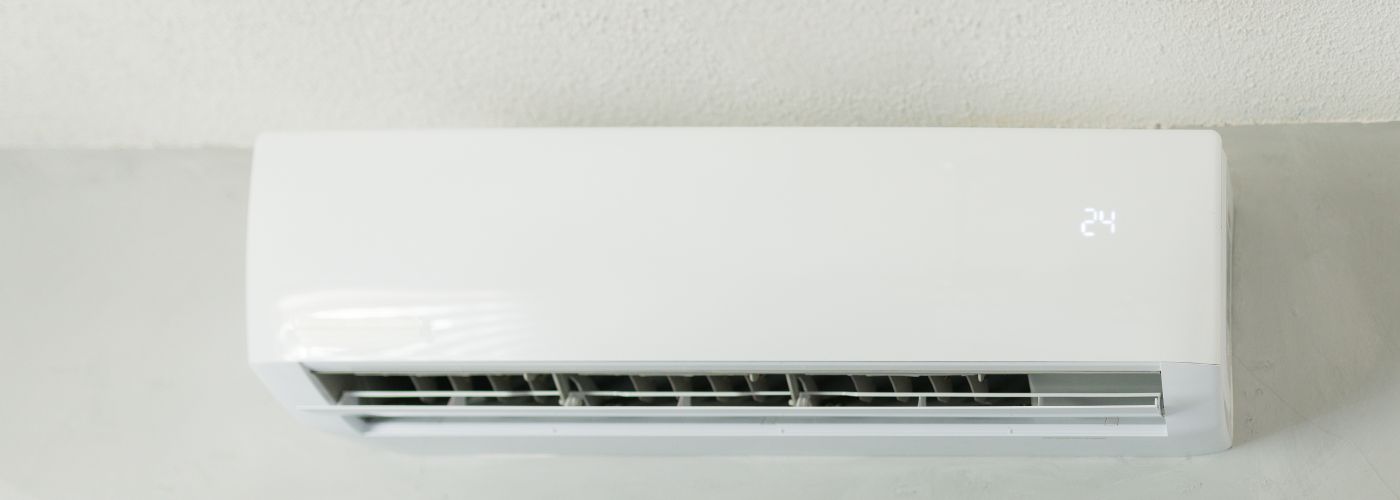Are you tired of battling inconsistent temperatures throughout your home? Ductless HVAC systems may be the answer you’ve been looking for. With their ability to provide zoned heating and cooling, these systems not only enhance comfort but also promote energy savings. In this article, we will unpack the key benefits of ductless HVAC technology, ensuring you have all the information you need to make an informed decision about your home’s climate control.
How Ductless HVAC Systems Work
Ductless HVAC systems, also known as mini-split systems, operate without the need for extensive ductwork. Instead, they use small indoor units connected to an outdoor compressor.
This design allows for targeted heating and cooling in specific rooms or zones, making them incredibly energy-efficient. Homeowners can adjust the temperature in individual spaces, which means less energy is wasted on unused areas.
One of the standout features of ductless systems is their ability to filter and purify the air. Many models come equipped with multi-stage filtration systems that trap dust, allergens, and other particles.
This not only improves indoor air quality but also creates a healthier living environment. Additionally, installation is typically straightforward, often requiring only a small hole in the wall for the refrigerant line, making them a practical choice for both new constructions and retrofits.
Flexible Installation Options With Ductless HVAC Systems
Ductless HVAC systems offer remarkable flexibility when it comes to installation, making them a popular choice for homeowners and businesses alike. Unlike traditional systems that require extensive ductwork, these units can be installed in various configurations to suit different spaces.

Whether you need a single-zone system for a small room or a multi-zone setup to condition multiple areas, ductless options adapt seamlessly to your needs. This versatility not only saves time but also reduces installation costs, as there’s often no need for major renovations.
Another appealing aspect of ductless HVAC systems is their ability to fit into unique architectural designs. With wall-mounted, ceiling-mounted, or floor-mounted units available, you can select the type that best complements your space.
These systems also allow for easy retrofitting in older buildings where installing ducts may not be feasible. Moreover, their compact size means they can be placed in tight spots without sacrificing performance. Ultimately, this level of adaptability ensures that you can enjoy efficient heating and cooling tailored to your lifestyle.
Improved Indoor Air Quality with Ductless Systems
Ductless HVAC systems are a game-changer for indoor air quality. Unlike traditional systems that circulate air through ducts, ductless units deliver conditioned air directly into each room.
This means less dust and allergens are stirred up, leading to cleaner air for you and your family. With fewer places for contaminants to hide, these systems help maintain a healthier living environment.
Another advantage of ductless systems is their ability to incorporate advanced filtration technologies. Many models come equipped with multi-stage filters that capture tiny particles and harmful pollutants.
This not only reduces indoor allergens but also helps eliminate odors, creating a fresher atmosphere. Plus, the individual control of each unit allows you to tailor the temperature and humidity levels, further enhancing comfort and well-being in your home.
Embracing ductless HVAC systems isn’t just about comfort; it’s a smart move towards improving your indoor air quality.
Durability and Reliability of Ductless Systems
Ductless HVAC systems are built to last, offering durability that rivals traditional systems. With fewer moving parts and no ductwork to maintain, these systems reduce the risk of wear and tear over time.

This streamlined design not only enhances longevity but also minimizes the chances of unexpected breakdowns. Homeowners often find that routine maintenance is straightforward, requiring less frequent servicing than their ducted counterparts.
Reliability is another key advantage of ductless systems. They perform well in diverse climates, providing consistent heating and cooling regardless of outdoor conditions. This adaptability means you can count on your ductless system to keep your home comfortable year-round.
Plus, many models come equipped with advanced technology that monitors performance and alerts users to potential issues before they escalate, ensuring peace of mind for homeowners.
What Are The Noise Levels With Ductless Systems
Ductless HVAC systems are known for their quiet operation, often making them a preferred choice for many homeowners. Unlike traditional units that can produce a cacophony of sounds, ductless systems typically operate at sound levels comparable to a whisper.
This means you can enjoy your space without the disruptive noise that often comes from conventional air conditioning or heating units.
Moreover, advancements in technology have made these systems even quieter over the years. Many ductless models are designed with variable-speed compressors, which adjust their output based on the cooling or heating demand.
This not only enhances energy efficiency but also minimizes noise levels. Homeowners can appreciate the serenity of their environment while still maintaining comfort, whether it’s during a cozy winter evening or a hot summer day.
Energy Efficiency Ratings For Ductless Systems
When considering ductless HVAC systems, energy efficiency ratings play a crucial role in making an informed choice. These ratings, often denoted by SEER (Seasonal Energy Efficiency Ratio) for cooling and HSPF (Heating Seasonal Performance Factor) for heating, provide insight into how well the system converts electricity into heating or cooling.
A higher rating means greater efficiency, which translates to lower energy bills and a reduced carbon footprint.
Additionally, it’s essential to look beyond the numbers. Not all ductless systems are created equal; installation quality and usage patterns can significantly impact efficiency. For instance, a well-installed system can outperform its rated efficiency due to optimal airflow and proper insulation.
Homeowners should also consider features like inverter technology, which allows the system to adjust its output based on demand, further enhancing efficiency and comfort.
